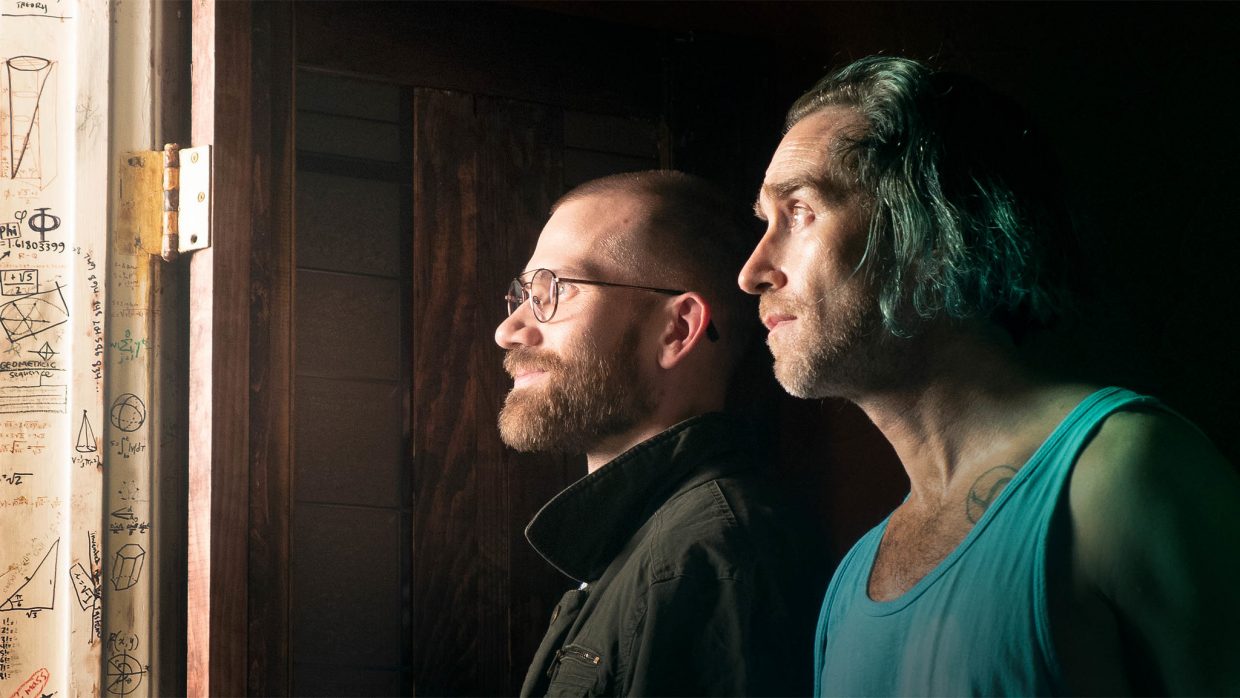 Back to selection
Back to selection
“Life Has More Meaning Creating With People That You Love” | Justin Benson & Aaron Moorhead, Something in the Dirt
 Still from Something in the Dirt. (Photo: Aaron Moorhead)
Still from Something in the Dirt. (Photo: Aaron Moorhead) The last two years have prompted much contemplation and reconsideration of the reasons why we make our films as well as the ways in which we make them. What aspect of your filmmaking—whether in your creative process, the way you finance your films, your production methodology or the way you relate to your audience—did you have to reinvent in order to make and complete the film you are bringing to the festival this year?
From a purely creative standpoint, it seems the last couple of years have rapidly changed how we receive and interpret genre film ideas as an audience, especially in the realm of science fiction. The thematic resonance of stories about non-terrestrial invasions, paranormal international conspiracies, or the threat of science-based monsters, just to name a few examples, obviously always morph with where we’re at as human beings at that time in history. But now more than ever it seems there can be unintended meanings to these stories, and moreover it’s even harder to elevate the fantastical elements of a genre concept beyond what’s happening all around us in real life.
The evolution of what is enthralling, mind-bending, frightening or horrific is accelerating at a pace that can be disorienting and overwhelming. And because many of the methods used to author science fiction with the aim of suspending disbelief in an audience are very similar to methods of disinformation, it was a time of deep reflection on why we tell these stories, as well as on what the ultimate legacy of today’s science fiction will be. Something in the Dirt was very much born of these conversations, and using this discourse as a jumping off point to innovate and bring something new to genre film that touches today’s very specific flame of humanity.
From a practical standpoint of making films, we obviously had to adapt to a smaller production footprint, which is never a bad thing to us. Something we’ve learned in the last year is that no matter the budget, besides the size of the vehicles you walk by on the way to set, once you’re at the nuts and bolts of filmmaking it’s all the same. There are definite advantages to working with a small crew, just as there are advantages to having a large crew, but for us, extremely streamlined sets are where we thrive creatively in a very special way. But most profoundly, especially among periods of so much isolation, we really came face to face with how important it is to us to make movies with each other. This job, like life, goes by so fast, and it has so much more meaning creating with people that you love and that you have a shared history with. So we realized that one of the primary reasons we got into this career was to make stuff with our friends, and in the last couple years it became more the reason we do it rather than a nice perk of the gig.
